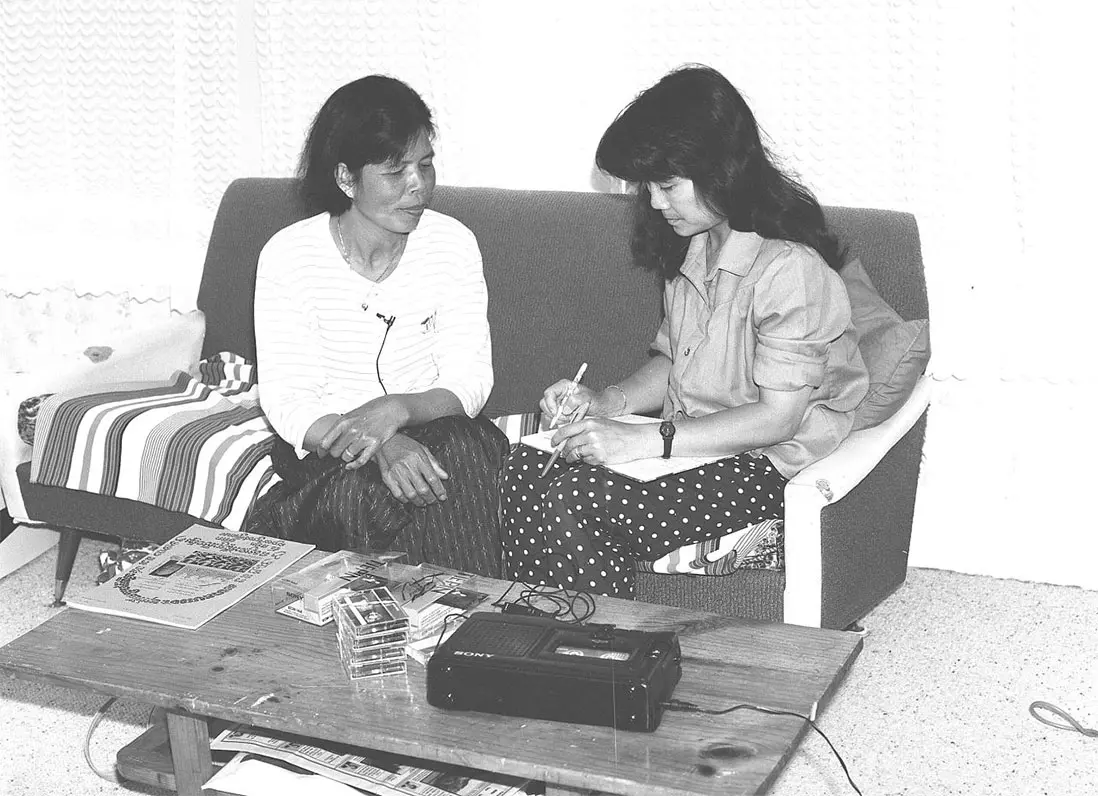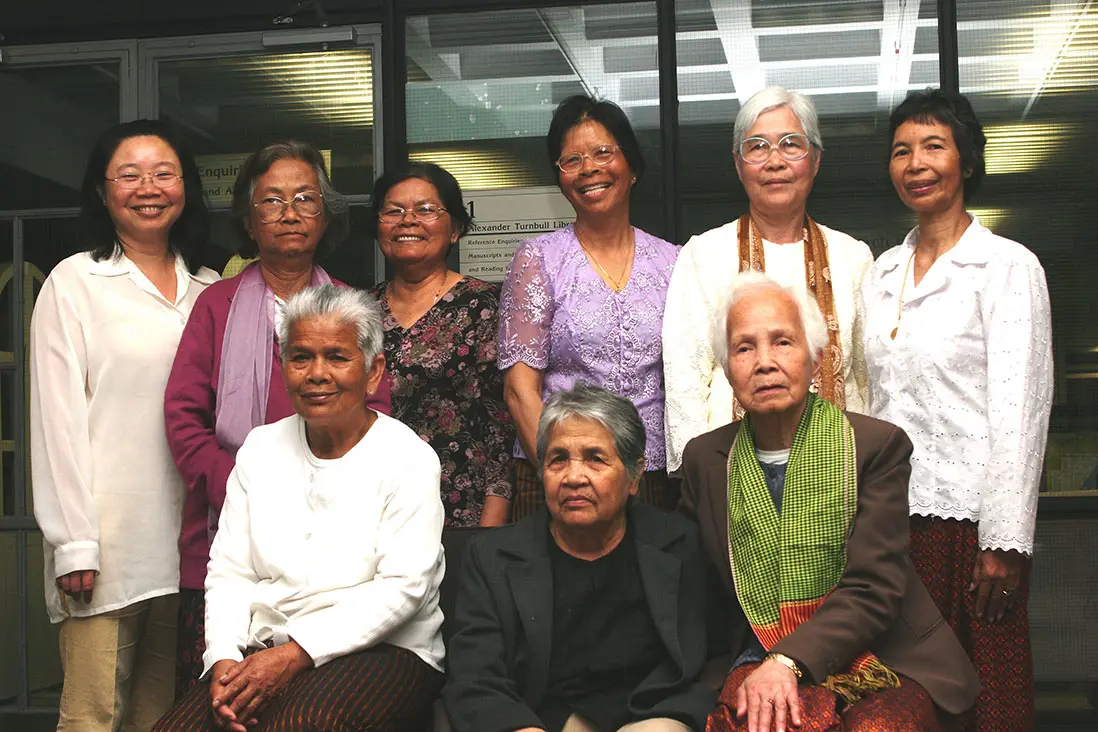Image credit: Cambodian oral history project interviewee Sokhom You (left) speaking to Niborom Young in 1993 by Victor Young. All rights reserved. Used with permission.

Image credit: Cambodian oral history project interviewee Sokhom You (left) speaking to Niborom Young in 1993 by Victor Young. All rights reserved. Used with permission.

Between 1975 and 1992, over 4000 Cambodians began a new life in Aotearoa NZ. Many were refugees escaping the murderous regime of the Khmer Rouge and some recorded their life stories. Find out more by exploring our collections and curated resources.
‘We thought tigers were wild, but the Khmer Rouge were worse, wilder than crocodiles, as they killed without mercy.’ The chilling words of Phalla Chok come from recordings of survivors of Cambodia’s civil war, made by Niborom Young and memorialised in the Turnbull Library’s Oral History and Sound Collection.
Young came to New Zealand from Cambodia in 1974 as a Colombo Plan student, but was unable to return home after the Khmer Rouge took over her country in a murderous revolution in 1975. She did not know what had happened to her family. Later, volunteering as an interpreter, she travelled to refugee camps for displaced Cambodians, hoping — fruitlessly — that she would find some trace of her relatives.
She began interviewing 10 other women from Cambodia in 1993 for Women’s Suffrage Centennial Year, recording the stories of their lives in Cambodia before, during and after the civil war. The interviewees recount their harrowing experiences under Pol Pot, the regime’s leader, their experiences of being refugees, and the process of getting to New Zealand and adjusting to life here.
The interviews were recorded in Khmer, the women’s first language. The tears Young shed with the women as they were telling their stories fell again as she painstakingly transcribed the interviews and translated them into English. She later turned them into book form in I Tried Not to Cry: The Journeys of Ten Cambodian Refugee Women, published by Steele Roberts in 2015.
‘I enjoy living in New Zealand,’ says Sokhom You, ‘but I still miss Cambodia very much … my absent family, my village, and many places and people … I can’t help but think of the many traumatic experiences I had under Pol Pot … the killing fields that made me suffer and now still linger in my mind. Every time I think of it, it hurts and I cry. Well at least now I can cry without the fear of death.’
This oral history archive is one of several taonga in the Turnbull Library inscribed on the New Zealand register of UNESCO’s Memory of the World. The register lists documentary heritage endorsed by UNESCO as being of world significance and outstanding universal value.
The archive allows another generation of Khmer New Zealanders to learn how they came to be here, and perhaps to get answers to questions that will never be satisfied by parents or grandparents trying to forget or bury their painful past.
Story written by: Lynette Shum
Copyright: Turnbull Endowment Trust
Image credit: Gathering of Cambodian oral history project interviewees, 2009 by Victor Young. All rights reserved. Used with permission.

The nine Khmer and one Khmer-Chinese participants in the Cambodian oral history project were born between 1920 and the 1950s and came from different parts of Cambodia and various circumstances. In 2009, the group came together to receive their copies of interviews and transcripts. Present were (clockwise from back left): Neary Khun (daughter of the late Heang Long), Sichun Saingtha, Sok Vorn (mother of Nom Khat), Sokhom You, Chhay San, Phalla Chok, Ngoc Chou Tran, Thol Sao, Peth Soun; absent: Yong Yin.
Read connected stories from Te Kupenga:
Explore the Alexander Turnbull Library collections further: Cambodian refugees.
Topic Explorer has Refugees.
Many Answers has Refugees (New Zealand).
Want to share, print or reuse one of our images? Read the guidelines for reusing Alexander Turnbull Library images.
Tikanga ā-iwi:
Te whakaritenga pāpori me te ahurea
Te ao hurihuri.
Te Takanga o Te Wā (ngā hītori o Aotearoa):
Tūrangawaewae.
Social sciences concepts:
Identity, culture, and organisation
Continuity and change.
Aotearoa New Zealand’s histories:
The exercise of power
Relationships and connections between people.